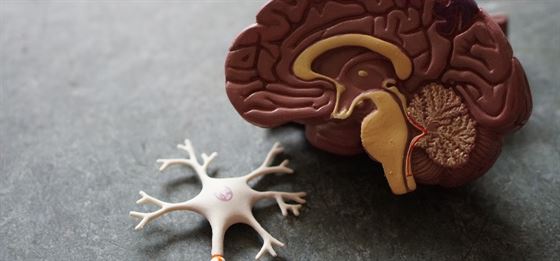
Understanding Positive Psychology

Every person is in pursuit of happiness. You want to be happy in your job, your relationship and your life in general. And while some people seem to have found the secret to happiness, others seem to struggle with it. What makes the difference? Let's take a look at what positive psychology has to say about happiness.
What is Positive Psychology?
Positive psychology is the scientific study of happiness. And while it may seem like a relatively new field, it’s been around for centuries. The father of positive psychology, William James believed that happiness is the ultimate goal of life.
Positive psychology has been defined as “the study of the conditions and processes that contribute to the flourishing or optimal functioning of people, groups, and institutions.” It is the scientific study of the strengths and virtues that enable individuals and communities to thrive. The field is concerned with understanding and fostering conditions that allow for optimal functioning. And while there is still much to learn, there are some key findings that can help you find more happiness in your life.
Elements of a Good Life
Dr Martin Seligman, an American psychologist and author of self-help books was a strong proponent of positive psychology and well-being. According to him, the five most important elements of "well-being'' are 'PERMA' which stands for Positive Emotions, Engagement, Relationships, Meaning and Accomplishments.
Positive Emotions
The emotional states which make you feel good. Examples include happiness, love, pride and contentment. Positive emotions broaden your focus and give you the energy to pursue your goals.
Engagement
The flow state or being fully absorbed in an activity. When you are engaged, time seems to stand still and you lose yourself in what you are doing. This can happen when you are playing a sport, working on a project or even just talking with a friend.
Relationships
Strong social relationships are one of the key predictors of happiness. This could be a romantic partner, a close friend or even just an acquaintance.
Meaning
Having a sense of purpose in life. This could come from religion, raising a family, or dedicating oneself to a cause.
Accomplishments
While this is not the most important element, it is still important to have a sense of accomplishment in life. This could come from work, hobbies, or any other area of life where you feel a sense of progress.
Increasing Happiness: 6 Things You Can Learn from Positive Psychology
1. Happiness Comes From Within
One of the most important things to understand about happiness is it comes from within. Sure, there are external factors which can contribute to your happiness, but ultimately it is up to you to choose happiness.
2. Happiness is a Choice
The absence of negative emotions does not guarantee happiness. Just because you don't feel sad or anxious, doesn't mean you are automatically happy. It's a choice you have to make.
3. Happiness is Contagious
A study by Harvard University and the University of California found happiness is contagious and can spread through social networks. When a person is happy, a friend living close by or their family have a 25% chance of becoming happy themselves. Surround yourself with happy people to increase your happiness.
4. Happiness Takes Work
Happiness doesn't just happen, it takes work. You have to be intentional about it. Choose activities which make you happy and do them regularly. It's also important to find a balance between work life and personal life. A study shows people are 12 times more likely to feel joyful when they spend at least a quarter of an hour every day with friends and family.
5. Happiness Leads to Success
It's often said success leads to happiness, but research shows it works the other way around as well. Research has found evidence that happiness leads to success in various areas of life, including work, relationships and health.
6. Happiness is not a Destination But a Journey
The final thing to understand about happiness is that it's not a destination but a journey. It's not something you achieve and then maintain, but something you have to work on every day. It's a journey which is worth taking and one that can lead to a life that is rich and fulfilling.
3 Key Benefits of Practicing Positive Psychology
1. Improved Mental Health
Studies have shown positive psychology can help reduce stress, anxiety and depression. It can also help increase self-esteem, and life satisfaction and help build resilience.
2. Improved Physical Health
When you are happy and have a positive outlook on life, it can lead to improved physical health. Happy people are more likely to take care of their health and are less likely to experience heart disease, stroke and other health problems.
3. Improved Relationships
Positive psychology can help people feel more connected and less isolated. It can also help you build stronger and more fulfilling relationships.
Being happy is not just about having a good time, it's also about improving your overall health and well-being. Learning about positive psychology can help you make choices which lead to a happier, healthier life.
Articles
Build your awareness and get inspired with our researched articles on how you can strengthen your well-being
Popular Topics
An OTP has been sent to the email address
provided.
Please check your Inbox and Spam folders.

What Would You Like to Speak with a Specialist About?
Mental Fitness Journey starts Now!
Chearful Connects you with Top-tier Qualified Wellness specialists for the Price of a cup of Coffee!

Next Steps
- A Client Team member will reach out to you to schedule a session with the most suitable specialist.
- You will receive an email with a 10% Discount Code* for your 1st session.
- We invite you to Explore the Platform & Sign Up today! *Upto a maximum of $10 discount on a session purchased




 3052 Read
3052 Read



.jpg)







.png)

.jpg)

.jpg)




.jpg)





































.jpg)


.jpg)
.jpg)





























